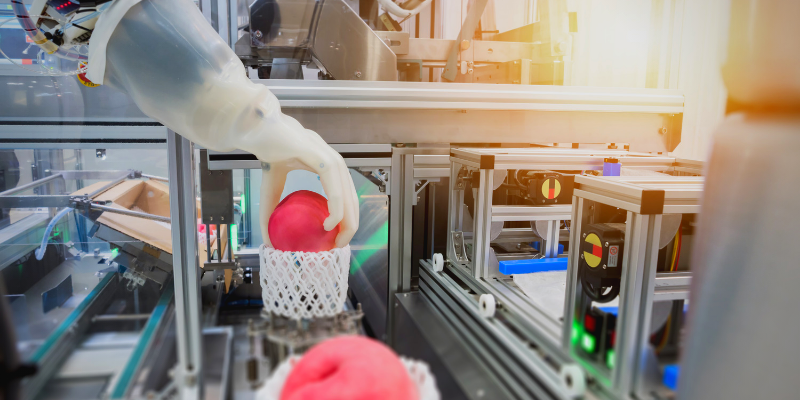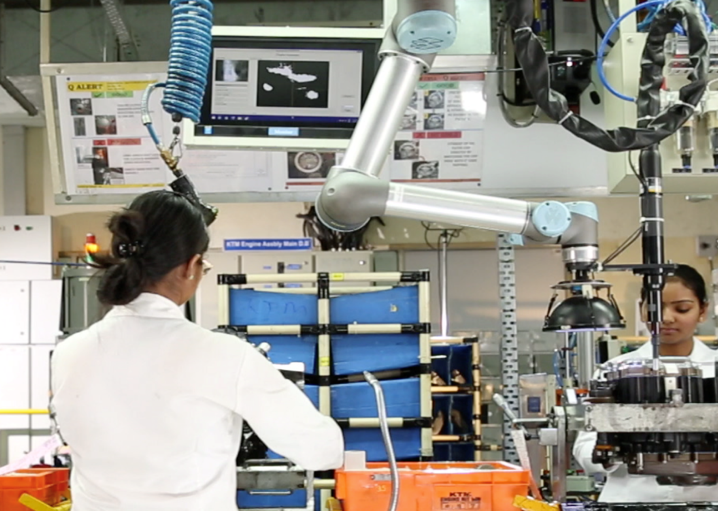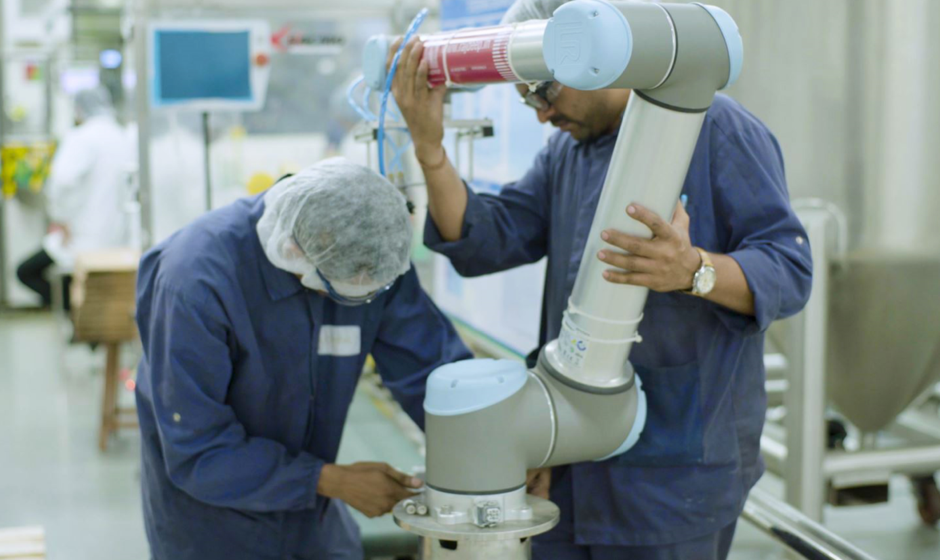The nationwide lockdown is pushing businesses over the edge, making huge dents on the economy and functioning of companies across the country and the world. The manufacturing industry, too, is in a phase of struggle as indicated by the Purchasing Managers’ Index (PMI) for India, which plummeted from 51.8 percent in March to 27.4 percent in April – indicating one of the greatest downfalls in business conditions in the last 15 years, according to the reports of data analytics firm IHS Markit.
Unsurprisingly, a study by EY found that 41 percent of employers across the world are fast-tracking automation plans in an endeavour to make up for lost productivity and also prepare for the world post-crisis.
The country’s ambitious Make in India programme was undoubtedly seen boosting the manufacturing sector but has now been hindered by the COVID-19 crisis, which has exposed vulnerabilities in long supply chains and current manufacturing processes.
The traditionally labour-intensive and technologically-challenged manufacturers of India, thus, have no choice but to adapt modern automation solutions to ensure they battle the global pandemic while also meeting their goals to put India on the map as a world-class manufacturer.

Human Robot Collaboration
The most obvious solution in a time like this is the deployment of robots, which can replace labourers and handle repetitive work as employees are forced to stay inside. However, not all manufacturers are able to deploy traditional robots, which require a large amount of valuable shop floor space, as they are bulky and need to be caged as they have the potential to harm people.
Additionally, traditional robots are difficult to install for first-time robot users, can take months to deploy and – with the crisis looming above – the time is of the essence for manufacturers to stay afloat. Because of this, an increasing number of Indian manufacturers are turning to collaborative robots, or cobots, to regain competitiveness in this time.
Unlike traditional industrial robots, which are known to be cumbersome and unsafe, cobots were built on the concept of Human-Robot Collaboration (HRC). Thanks to their advanced safety features, cobots can, thus, work together with humans in the same physical workspace, thereby enabling both man and machine to work on what each does best, together. They act as a helping hand, taking over jobs that require high accuracy and are monotonous, thus freeing up employees for tasks that require more human ingenuity.
With the COVID-19 situation forcing new operating standards like social distancing on the factory floor, cobots are an ideal solution, especially for assembly lines which are often crowded and labour-intensive.
By facilitating HRC, cobots can work alongside people, ensuring there is no loss of productivity, even if companies are not operating with their entire workforce. In fact, a study by MIT shows that there is an 85 percent reduction in the idle time of workers when they collaborate with robots.

Cobots ensure social distancing on the shop floor by facilitating Human-Robot Collaboration at Bajaj Auto Ltd.
Cobots to the rescue
Collaborative robots are one of the quickest automation solutions in the market and are easy to programme, even for first-time robot users.
They can be set up within half a day for a basic application, making them ideal for manufacturers looking for a fast solution to combat productivity and quality issues.
They can also be easily moved and flexibly redeployed for new applications on the shop floor, making them a worthwhile long-term investment. L’Oreal India’s plant in Chakan, for example, uses cobots from Universal Robots for palletising. When one of their product lines was shut, the L’Oreal team redeployed their cobots to a new line, all by themselves.

Cobots are one of the fastest automation solutions and can be flexibly redeployed for new applications. Photo from L’Oreal India
Democratised, flexible automation
Because of their flexibility and low footprint, cobots enable partial automation, meaning a manufacturer does not need to invest in automating an entire process. Rather, a cobot can be used to automate one specific application, while the ancillary operations can carry on manually or as before.
For example, at Sri Sai Markers and Engravers, an SME in Gurgaon that creates laser-engraved auto components, a collaborative robot is used for spray painting to ensure consistency of paint deposit. However, humans are still present to not only oversee the cobot, but also load and unload parts for spray painting and carry quality checks.
Rather than automating the entire applications in such cases, manufacturers ensure that humans worked on tasks they handled best while using cobots to automate only specific processes. Thus, this flexible automation enabled by collaborative robots reduces the capital expenditure for a company looking to automate.
In essence, cobots were first created with the mission to democratise automation. That is, they lower common barriers to automation such as large amount of space, expertise and knowledge, and capital expenditure required for traditional automation solutions that manufacturers often face. They further address each of these challenges with their ease of use, versatility, flexibility, and advanced safety features that make them capable of operating cage-free (subject to risk assessment of the application). This makes cobots function as new-age ‘’tools’’ in a toolbox.
The road ahead
As this unsettling and unfortunate time challenges traditional means of operations for developed and developing countries alike, there is also an opportunity for growth for Indian manufacturers to take charge of their future by deploying the latest Industry 4.0 principles, of which Human-Robot Collaboration is a key tenet.
As one of the fastest automation solutions out there, cobots can help manufacturers quickly adapt to the new normal, which includes principles of social distancing to ensure the safety of workers on the shop floor.

How digital adoption will power the post-lockdown revival and create a new industry normal
Cobots are a niche technology that not only will accelerate recovery for industries but also help protect them from any potential future disruptions, thereby contributing to the resurgence of the country’s economic status, as well as facilitating the Make in India initiative to put India on the map as a manufacturing hub of global standards.
(Edited by Javed Gaihlot)
(Disclaimer: The views and opinions expressed in this article are those of the author and do not necessarily reflect the views of YourStory.)
Want to make your startup journey smooth? YS Education brings a comprehensive Funding and Startup Course. Learn from India's top investors and entrepreneurs. Click here to know more.
Link : https://yourstory.com/2020/05/manufacturing-covid-19-era-cobots-role
Author :- Pradeep David ( )
May 27, 2020 at 10:35AM
YourStory
